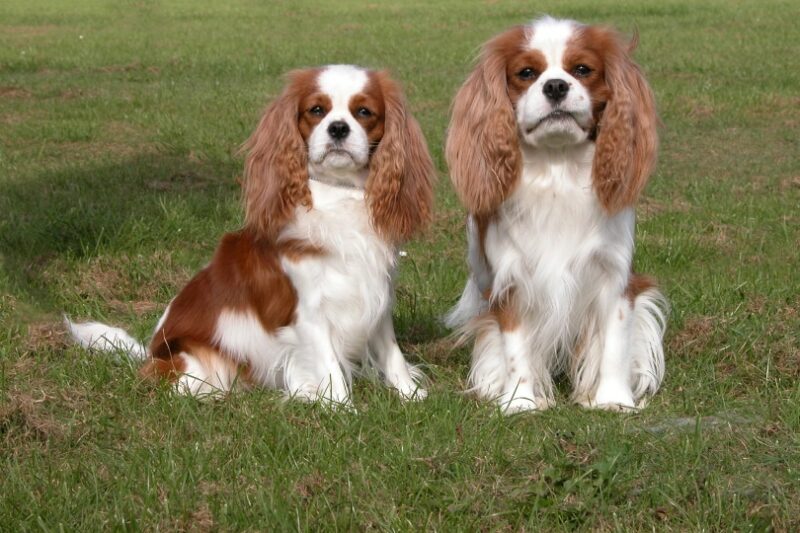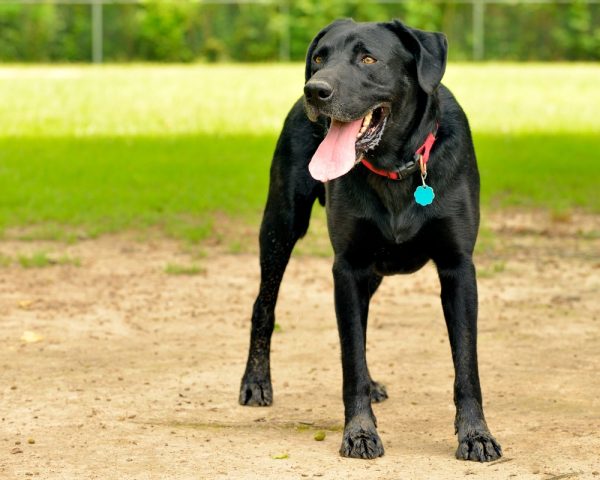The Cavalier King Charles Spaniels are loving and affectionate companions with a fascinating history. Their adorable looks, interesting name, and personality all come with a story. They are one of the oldest Spaniel breeds, and their popularity dates back centuries and continues to grow today.
In this article, we’ll spotlight this adorable breed, so if you are thinking of adding one to your family, these fascinating facts should help seal the deal.

The 12 Cavalier King Charles Spaniel Facts
1. Cavalier King Charles Spaniels Are Named After King Charles II of Britain
The name of this breed derives from King Charles II 1 of Great Britain, who ascended to the throne in 1661. During the English Civil Wars, his father’s supporters were known as Cavaliers, and he continued to use the name as a political classification after he was proclaimed king.
Charles adored his Spaniels; he always surrounded himself with the dogs and took them everywhere.
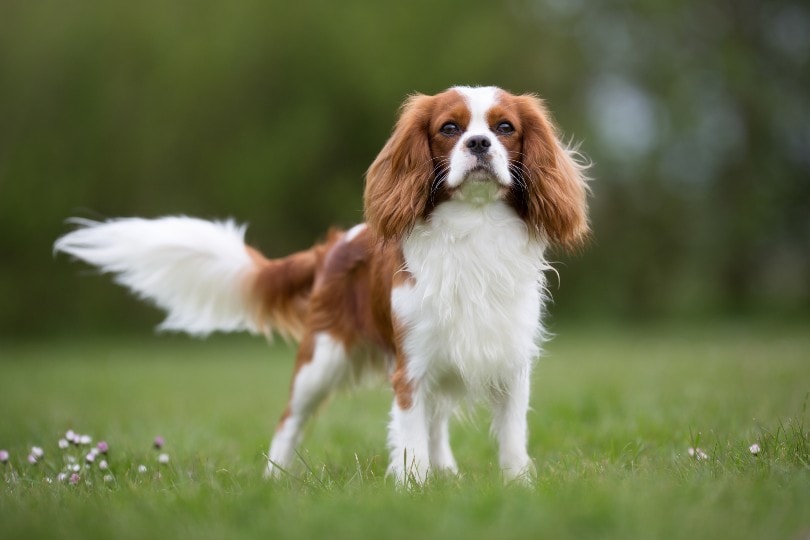
2. Politics Almost Caused This Breed to Vanish
As it turns out, King Charles II’s affection for his Spaniels nearly destroyed the breed. After the king died without an accepted descendant, political strife and warfare gripped England, resulting in the establishment of a new ruling family. Being associated with the previous king’s favorite dog breed was deemed politically risky, and so, as a result, Cavalier King Charles Spaniels became very rare while other breeds grew in popularity, such as the Pug.
The Second World War had a significant impact on this breed as well. Due to food and supply shortages, the once sizable breeding population diminished to only a few individuals.
3. The Cavalier King Charles Spaniel Is One of the Oldest Spaniel Breeds
In the 1600s, breeders created the Cavalier from the original English toy spaniel and Asia toy breeds. However, by the 20th century, their appearance had changed dramatically. Breeders began crossing the spaniel with pugs during King Charles II’s reign.
Roswell Eldridge stepped in to rebuild the breed and offered a monetary prize to anyone who could breed the dog to look like the original King Charles Spaniel. Several breeders took on the task, and a successful breed was born in 1945. This breed evolved into the Cavalier King Charles Spaniel, which is now popular in England and North America.
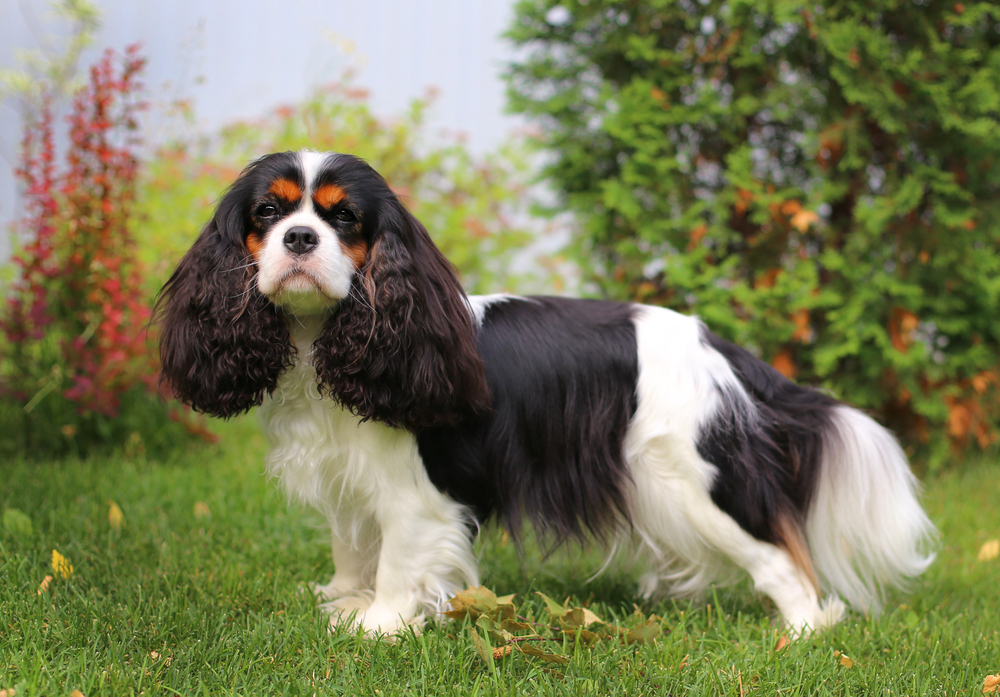
4. The Cavalier King Charles Spaniel Is a Relatively New Breed in the Dog World.
In 1945, the British Kennel Club formally recognized the Cavalier King Charles Spaniel, but the breed is a recent addition to the American Kennel Club. They were accepted into the AKC 2 , becoming its 140th recognized breed, a little more than a half-century later, in 1995. They are, therefore, a relatively new breed, even though they descended from ancient Spaniels.
5. The Breed Was Once Used to Attract Fleas
Fleas were abundant during the bubonic plague. The nobles decided to keep their dogs close, to share their laps, and encouraged them to share their beds to help attract fleas. The fleas were thought to prefer the dogs’ coats and keep the fleas away from them, so their Cavaliers were used as “flea magnets,” but whether or not this method was successful is unknown.
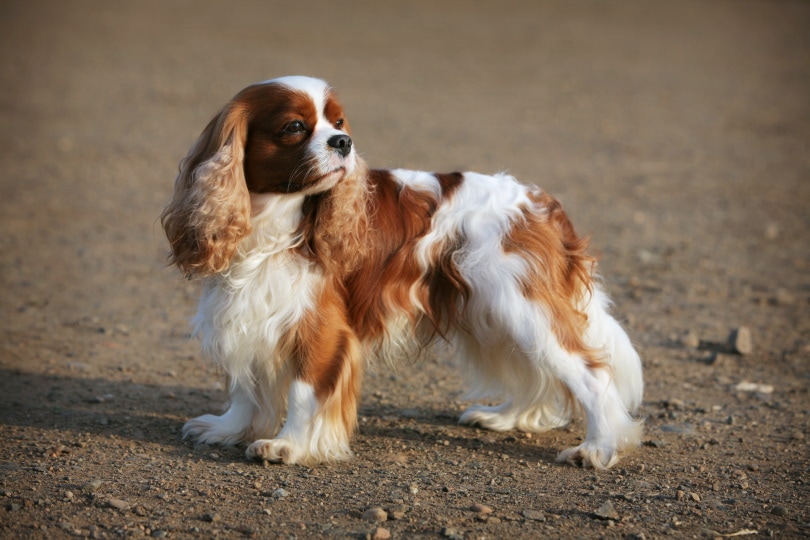
6. Cavalier King Charles Spaniels Come in Four Colors
According to the breed standard, the Cavalier King Charles Spaniel can only be found in four acceptable colors. These colors include Blenheim, which is typically the most popular color, tricolor, ruby, and black and tan, which was King Charles’ favorite color and also the rarest.
A Blenheim coat has a white background with chestnut markings, a tricolor coat has black markings on a white background with tan markings on the eyes and cheeks, a ruby coat is red all over, and black and tan is similar to the tricolor coat with additional markings on their chest and legs.
The color of the coat will most likely influence the price of any Cavalier you find for sale.
Most Cavalier King Charles Spaniels share the Blenheim spot. It is a chestnut-colored spot found in the center of the forehead. On August 13, 1704, the Duke of Marlborough won the Battle of Blenheim. The duke’s wife, Sarah, would console herself by stroking her pregnant Cavalier’s forehead and her dog went into labor at the same time her husband won the battle.
Each puppy was born with the same spot, and it was named the Blenheim Spot.
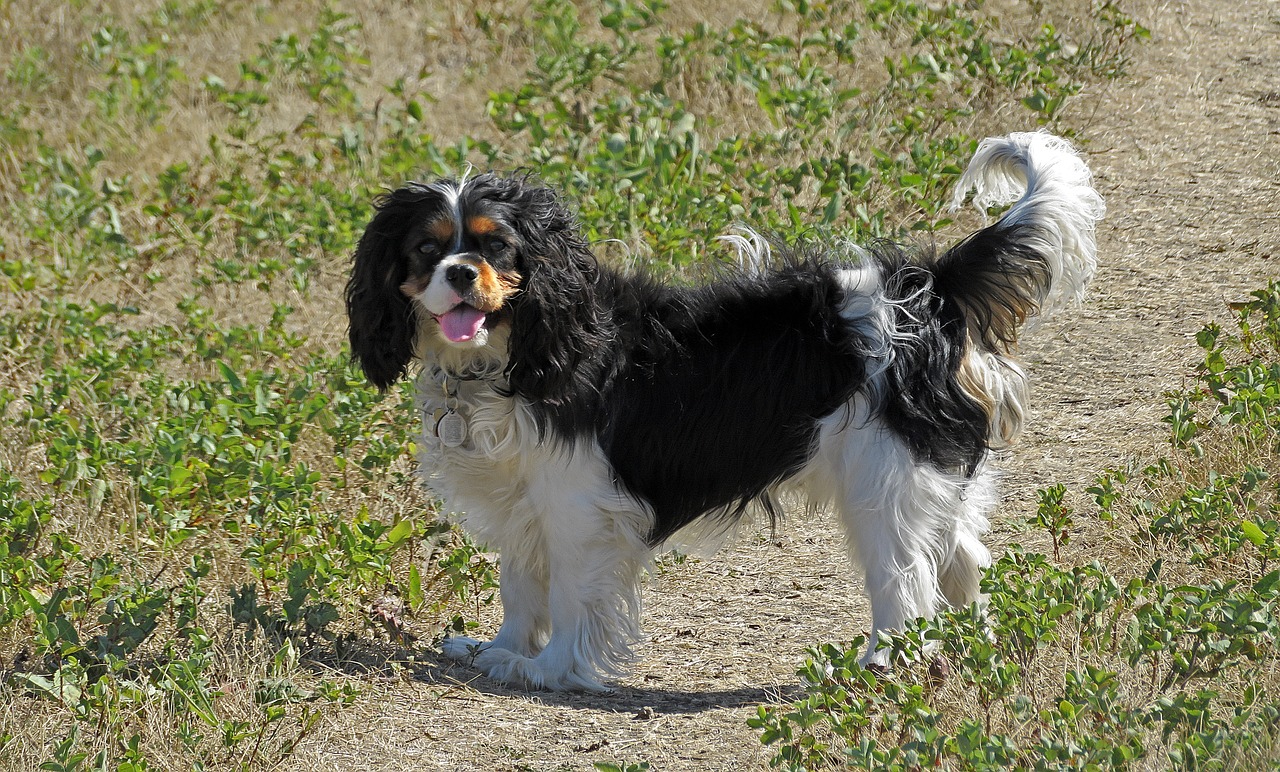
8. Cavalier King Charles Spaniels Are the Largest of Toy Breeds
Cavalier King Charles Spaniels was accepted to the American Kennel Club in 1995 and classified as a Toy Breed. The dogs are popular for their temperament and are predominantly lap dogs, which is why it makes sense that they are classified as a toy breed rather than a sporting breed.
They are, however, one of the largest dogs in the classification, typically reaching 12–13 inches tall and weighing up to 13–18 pounds. This category also includes Yorkshire Terriers, Maltese, and Chihuahuas.
9. Cavalier King Charles Spaniels are One of the Most Popular Breeds in America
The Cavalier King Charles Spaniel is regarded as one of the best companion dogs in America. They are patient, loyal, affectionate, great with children, and will quickly steal your heart with their large eyes and fluffy ears.
According to AKC registration statistics, the Cavalier King Charles spaniel entered the top 20 most registered dog breeds in America in 2012 and moved up recently by two spots placing 18th. Their popularity is still growing today.
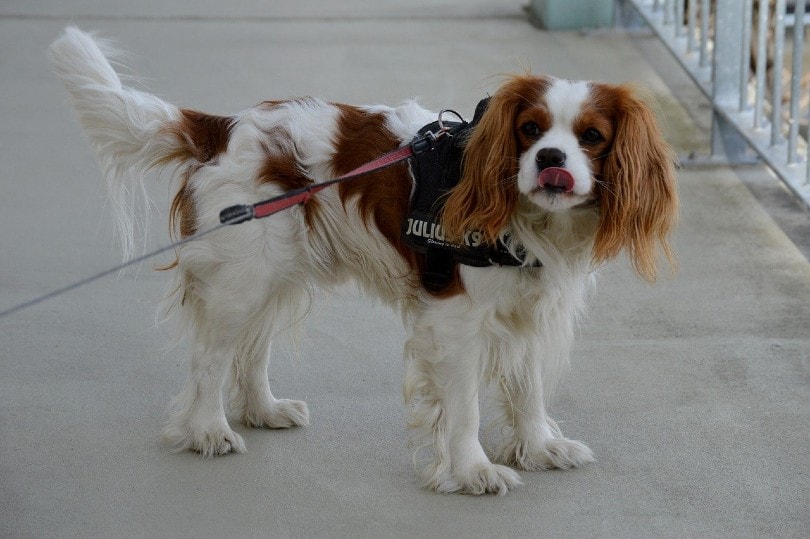
10. The Cavalier King Charles Spaniel Is a Smart Breed
Cavalier King Charles Spaniels are a highly intelligent breed. In a test conducted in 1994 by Stanely Coren for his book, The Intelligence of Dogs, Cavaliers ranked number 44 out of 138 for working and obedience. The Cavalier King Charles Spaniels usually obeyed the first command 50% of the time.
The most intelligent dogs would obey 95% of the time, while the least intelligent would obey 25% of the time. While they are not the most intelligent dog on the list, they are also not the least competent. Their level of intelligence makes it easy for a dog owner to teach it new tricks and potty training.
11. The Cavalier King Charles Spaniel Excels as a Therapy Dog
A therapy dog must be affectionate and patient with humans, and a Cavalier King Charles Spaniel is the perfect fit. They are loving and make incredible companions, and it is only natural that they would excel as therapy dogs.
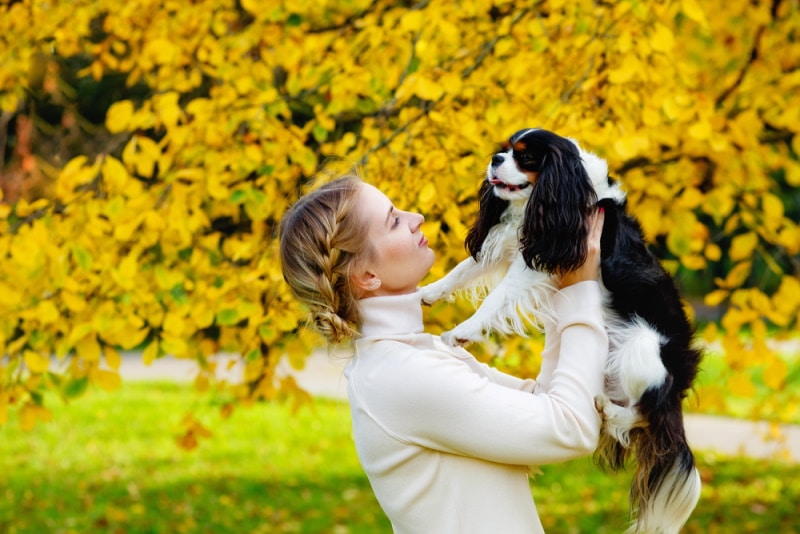
12. They are Not Always the Healthiest Breed.
Cavalier King Charles Spaniels are vulnerable to a few inherited health issues. The most common problems are syringomyelia, which is a nervous system disorder, and mitral valve disease, which is a heart condition. They are also prone to joint and eye problems.

Final Thoughts
The Cavalier King Charles Spaniel is a charming breed that has captured people’s hearts since the 17th century. Their endearing characteristics, affectionate personality, and adorable appearance continue to win hearts today. These fascinating facts make it easy to understand why this breed is so popular today.
They make wonderful companions, excellent therapy dogs, and have an exciting history that will always make for an interesting conversation starter.
See also:
- Syringomyelia in Cavalier King Charles Spaniels: Signs, Causes & Care (Vet Answer)
- Is a Cavalier King Charles Spaniel Hypoallergenic? Breed Facts & FAQ
Featured Image Credit: Sue Thatcher, Shutterstock
